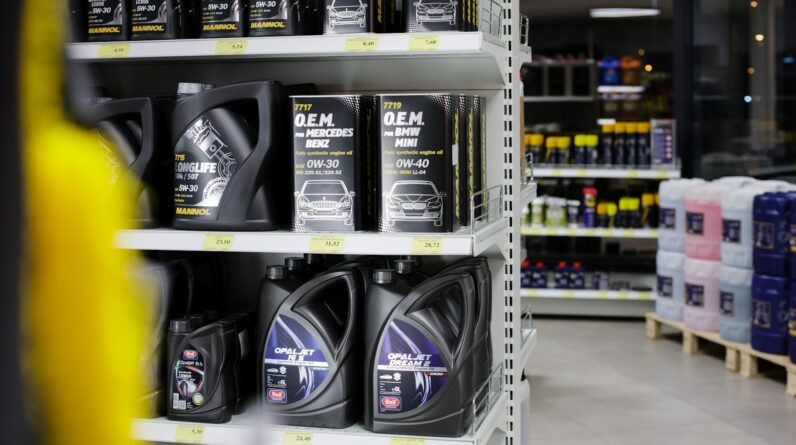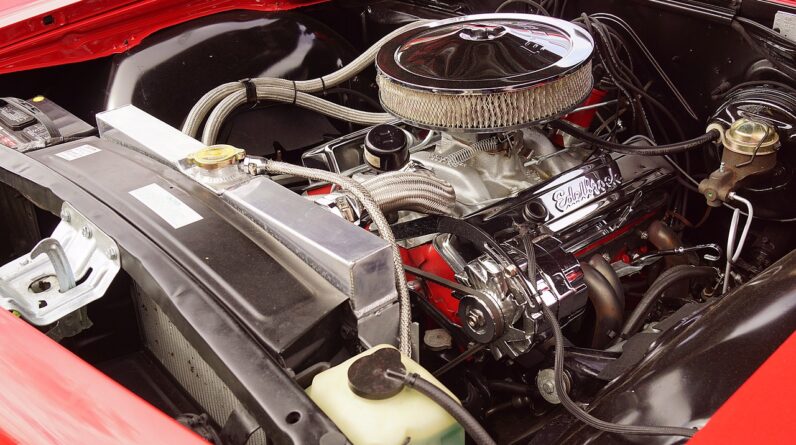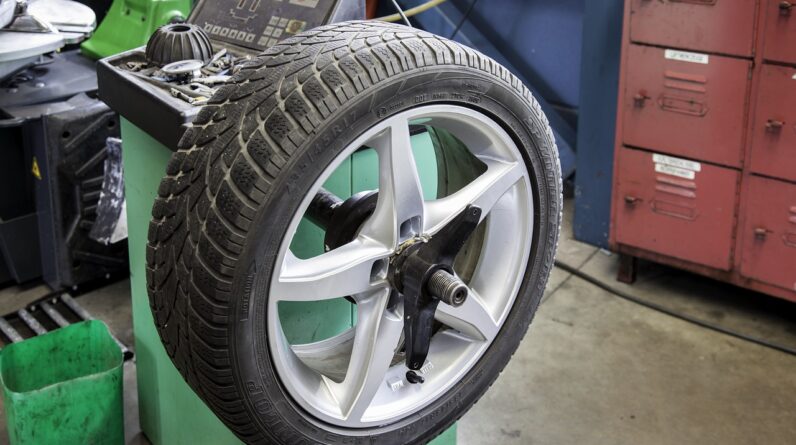
Welcome to our guide on understanding your car warranty options! In today’s world of automobile ownership, it’s crucial for us to be informed about the various warranty choices available. With the right knowledge, we can confidently make decisions that best suit our needs and safeguard our investments. In this article, we’ll explore the different types of warranties, what they cover, and how to choose the best one for us. Let’s dive in and demystify car warranties together!
Do you ever find yourself scratching your head and wondering about the different car warranty options available to us? You’re not alone. Navigating the world of car warranties can be tricky, but we’re here to make it a little less overwhelming. Let’s dive deep into understanding our car warranty options and how they can benefit us.

What Is a Car Warranty?
To put it simply, a car warranty is an agreement between us and the manufacturer or dealer. This agreement is there to cover certain costs in case our vehicle needs repairs or replacements during a specified period. Think of it as a safety net for our automobile, protecting us from unexpected expenses.
Types of Car Warranties
New Car Warranty
When we drive a shiny, new car off the lot, it typically comes with a warranty from the manufacturer. This type of warranty often covers a range of repairs and services for a set period or mileage.
Basic Warranty
Also known as a bumper-to-bumper warranty, it generally covers almost everything except wear-and-tear items. It’s like the all-encompassing hug for our new car.
Powertrain Warranty
This covers the essential parts that make our car move, such as the engine, transmission, and drivetrain. It’s more specific but still vital for our car’s health.
Hybrid/Electric Battery Warranty
For those of us with hybrid or electric vehicles, this warranty is a lifesaver. It specifically covers our car’s battery, which can be pretty expensive to replace.
Here’s a table to summarize:
| Warranty Type | Coverage | Typical Duration |
|---|---|---|
| Basic Warranty | Almost everything except usual wear-and-tear items | 3-5 years or 36,000-50,000 miles |
| Powertrain Warranty | Engine, transmission, drivetrain | 5-10 years or 60,000-100,000 miles |
| Hybrid/Electric Battery | Car’s battery | 8-10 years or 100,000-150,000 miles |
Extended Car Warranty
Once our basic warranty expires, an extended warranty can step in to continue protecting us. These are often purchased separately and can be from the manufacturer or a third-party provider.
Manufacturer-Extended Warranty
This is an extension of the new car warranty and ensures continuous coverage. It’s typically pricier but offers peace of mind since it’s directly from the manufacturer.
Third-Party Extended Warranty
These warranties are offered by independent companies. They might be more affordable but could come with more limited coverage or restrictive conditions. It’s crucial to read the fine print.
Used Car Warranty
Buying a used car doesn’t mean we’re out of warranty options. Many dealerships offer warranties on pre-owned vehicles.
Certified Pre-Owned (CPO) Warranty
Cars labeled as CPO come with reconditioned status and an extended warranty from the manufacturer. They cost more but offer a sweet spot between new and used car warranties.
Dealership Warranty
Some dealerships provide warranties on their used cars. The coverage can vary widely, so we need to ask for details.
Specialty Warranties
Aside from the standard categories, there are warranties tailored for specific components or aspects of our vehicle.
Corrosion/Rust Warranty
This covers us in case our car’s body rusts through. It’s particularly valuable if we live in areas with harsh winters or near the ocean.
Emissions Warranty
Emissions-related parts, like the catalytic converter, fall under this warranty. It ensures our car meets the required standards and sometimes is federally mandated.
What’s Covered Under a Warranty?
It’s essential to know what’s covered to make the most out of our warranty. Here are usual inclusions:
- Repairs and replacements for defective parts
- Labor costs associated with covered repairs
- Roadside assistance including towing, flat tire changes, and lock-out services
- Rental car reimbursement if our car needs prolonged repair time
What’s Not Covered?
Warranties aren’t all-encompassing. Here are some common exclusions:
- Wear-and-tear items like brake pads, tires, and wiper blades
- Regular maintenance such as oil changes and brake fluid
- Damage from accidents, misuse, or environmental factors
- Modifications or aftermarket parts

Factors to Consider
Reliability of the Vehicle
If our car model has a reputation for being reliable, we might not feel the need for extensive warranty coverage. On the flip side, for models with questionable reliability, a robust warranty can be a lifesaver.
Cost vs. Benefit
Weighing the cost of the warranty against potential repair expenses is crucial. Are we likely to spend more on repairs than the warranty cost? If yes, the extra safety net might be worth it.
Our Driving Habits
If we have a long daily commute or frequently take road trips, there’s a higher chance our car might need repairs. This could make an extended warranty more appealing.
Dealer and Mechanic Network
If the warranty requires us to use specific dealerships or mechanics, we need to make sure they’re conveniently located. A warranty is only useful if we can easily access the services.
Tips for Choosing the Right Warranty
- Read the Fine Print: The devil is in the details. Understanding the terms and conditions can save us headaches down the line.
- Ask Questions: If something isn’t clear, we shouldn’t hesitate to ask. Full transparency is crucial.
- Check Reviews: Look at customer reviews of the warranty providers. Their experiences can give us insights into potential red flags.
- Compare Offers: Shopping around helps us ensure we’re getting the best value for our money.

How to File a Warranty Claim
Filing a warranty claim can seem daunting, but it doesn’t have to be. Here’s a step-by-step guide to make the process simpler:
- Identify the Issue: Know exactly what’s wrong with our vehicle.
- Review the Warranty: Make sure the problem is covered under our warranty terms.
- Contact the Provider: Whether it’s the manufacturer or third-party, get in touch with them asap.
- Provide Documentation: Usually, claims require proof of regular maintenance and the issue itself.
- Get Authorization: Before proceeding with repairs, ensure we have permission from the warranty provider.
- Complete Repairs: Use authorized dealerships or mechanics to avoid complications.
- Submit Claim: After repairs, submit all required paperwork and receipts for reimbursement.
Common Myths About Car Warranties
“All Warranties are the Same”
Not true. They vary significantly in terms of coverage, limitations, and provider reputation. It’s essential to understand our specific warranty.
“I don’t need a Warranty if my Car is Reliable”
Even reliable cars can have unexpected issues. While the frequency might be lower, the cost of repairs can still be high.
“Extended Warranties are a Scam”
While it’s true that some extended warranties might not offer good value, many others provide essential coverage and peace of mind. Research is key.
“I Must Use Dealerships Only”
While this might be a condition for some warranties, others allow us to use any certified mechanic. Always check the terms.
FAQs: Frequently Asked Questions
Is it worth getting an extended warranty?
For many of us, the peace of mind alone justifies the cost of an extended warranty. However, if our car is known for its reliability and we maintain it well, the warranty may end up being an extra expense.
Can I transfer my warranty if I sell my car?
Yes, many warranties are transferable, adding value to our vehicle when we decide to sell it.
What voids my car warranty?
Ignoring regular maintenance, using unauthorized mechanics, and modifying the car with aftermarket parts can often void our warranty. Always adhere to the guidelines.
Can I cancel my extended warranty?
Most extended warranties offer a grace period within which we can cancel for a full refund. Beyond this period, there might be prorated refunds or other rules.
Conclusion
Understanding our car warranty options is key to making informed decisions that can save us both stress and money in the long run. Whether it’s a new car warranty, an extended coverage plan, or specialized protection for certain components, knowing the ins and outs helps us choose what’s best for our needs. Let’s take the time to research, ask questions, and weigh our options carefully. After all, our car is a significant investment, and it deserves to be protected with the right warranty. Happy driving!






